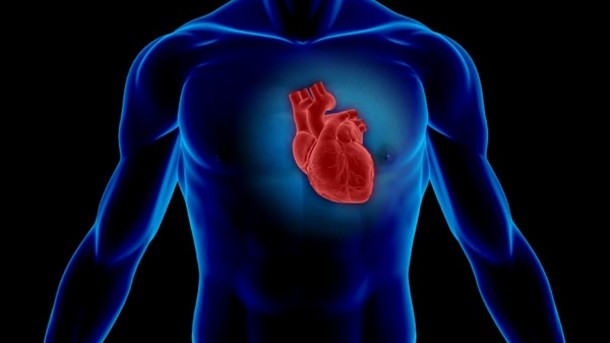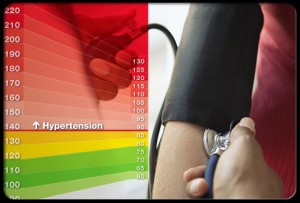2nd December 2014
Contributing Writer for Wake Up World
There is a new buzz word regarding a possible predictor of a stroke, coronary heart disease or peripheral vascular disease, and that word is homocysteine; a non-protein α-amino acid derivative from the amino acid cysteine. Many epidemiological studies have shown that too much homocysteine in the blood (specifically the plasma portion) is related to a higher risk of cardiovascular events and atherosclerosis, the plaquing of the arteries.
So how does one collect so much homocysteine in the blood that it can result in such serious health risks?
The answer is simple: diet, lifestyle factors and chronic stress.
Stress, Vitamins and Homocysteine
A major factor that contributes to an increase of homocysteine in the blood is a deficiency of three different, yet co-dependent, B-group vitamins:
Stress has long been known to deplete the body of B vitamins (and vitamin C), so this isn’t really a big surprise. And when we add poor diet choices along with the sedentary lifestyle and Standard American Diet (or SAD – a very appropriate acronym I might add!) the deficiency only worsens. This then can sets off a chain of reactions that ultimately lead to disease such as:
• Anxiety
• Chronic fatigue
These diseases are often compounded by conventional pharmaceutical “treatments”, which further deplete the body of vital nutrients.
Is it any wonder that cardiovascular disease is now the number one cause of death from any health condition (or should I say, disease condition) in the United States?
Strangely enough (but not surprising) the FDA and pharmaceutical companies want to ban vitamin B6 from the market, only to rename it as a drug to be sold only by prescription! By eliminating access to this vital nutrient, and with our food already nutrient-depleted, over processed, and full of chemicals, what are the chances that cardiovascular events will continue to increase? And what are the chances that this will increase the sales of even more pharmaceutical drugs?
Talk about irony!
A Vicious Cycle
Let’s talk about how homocysteine levels rise in the blood.
In order for the body to process homocysteine, it first must be converted to methionine (an essential amino acid), and this requires an enzyme called methionine synthase. But guess what, methionine synthase requires vitamin B12. If your vitamin B12 levels are low, this means that a vitamin B12 deficiency can easily be indirectly responsible for elevated homocysteine levels in the blood.
With an estimated 10 to 20% of Americans clinically vitamin B12 deficient, and with an unknown amount of people “sub-clinically” or borderline deficient, why isn’t more attention being given to this correlation?
Not only do we have a society that is both malnourished and overweight, we also have high societally- and self-induced levels of stress. And as I already mentioned, stress depletes B vitamins in the body.
Interestingly, there is one other major problem that is significantly involved with the absorption of B vitamins — gastrointestinal issues. When you are under constant stress, and/or eat poorly, it’s no secret the problems that it can cause to your digestive system. In fact, it is such a problem that entire aisles in the grocery store and drug stores are dedicated to just gastrointestinal issues! And, with gastrointestinal issues comes the inability to absorb nutrients such as Vitamin B2 (Riboflavin), Vitamin B3 (Niacin), Vitamin B6 (Pyridoxine) – and particularly Vitamin B12 (Cobalamin)!
What a cycle!
A Quick Word About Vitamin B9 (Folic Acid)
Folic acid is generally recognized as a pre-natal vitamin, which helps to prevent neural tube defects of the unborn child. It is also associated with anemia, which is most commonly the result of a deficiency of folic acid, vitamin B12 or iron. Besides that, hardly a mention apart from the minuscule amount prescribed as the Recommended Daily Allowance. gastrointestinal issues and other
So, based on what we know, it’s easy to make a connection between:
- Anemia and cardiovascular events, and/or
- Gastrointestinal issues and cardiovascular events, and/or
- Stress and cardiovascular events.
It is also very simple to make the appropriate corrections to reduce homocysteine levels and prevent its effects on the cardiovascular system.
How? By correcting dietary B vitamin deficiencies earlier on.
… And that’s the true meaning of disease prevention!
Resources:
- Natural News / Folic acid supplementation improves arterial elasticity to lower heart attack risk
- Heart.org / Homocysteine, Folic Acid and Cardiovascular Disease
- American Nutrition Association / Folic Acid for Heart Health
- AHA Journals.org / How Does Folic Acid Cure Heart Attacks?
Previous articles by Dr. Michelle Kmiec:
- Fluoride Linked to Coronary Heart Disease
- Studies Prove Sweet Potatoes Heal Stomach Ulcers
- The Truth About Insomnia, Depression and Anxiety
- Are There Natural Cures for ALS?
- Natural Cure for Depression Silenced?
- The Link Between Stress and Intestinal Parasites – and What to Do About Them
- Arthritis Cure Found in Nature
- The Sun & Skin Cancer: Examining the Truths, Pseudo-Truths & Lies of Mainstream Science
- “Blame It On Your Genes”: the Money-Making Myth of Modern Medicine
- A Natural Cure for Migraines
- Natural Cure for Chronic Pain Syndromes Silenced by the Medical Establishment
About the author:
Dr. Michelle Kmiec is a chiropractic physician who also holds a Bachelor of Science degree in Human Biology, and a minor in Medical Research. She is a life-long athlete who after curing herself 100% naturally from MS and anxiety, became an avid nutrition and health researcher/promoter. She has been featured in many health magazines and has been a guest on radio talk shows in the USA, Canada, United Kingdom, and Australia. She is also the author of “Healthcare Freedom Revolution: Exposing the Lies, Deceit and Greed of the Medical Profession“, founder of Online Holistic Health, and a contributing writer for other informative health websites.
Natural Remedies for High Blood Pressure (Hypertension)
Contributing Writers for Wake Up World
About 74 million (1 in 3) American adults (20 and over) have high blood pressure (hypertension). From 1995 to 2005, the death rate from high blood pressure increased 25.2 percent, and the actual number of deaths rose 56.4 percent. It was once thought that high blood pressure was a ” man’s disease”; in fact, woman are as likely to suffer from this condition as men are. Interestingly enough, more women than men die from complications of high blood pressure every year. Considering this fact, it is important that both men and women monitor their blood pressure regularly.
Blood pressure is represented as a pair of numbers. This first is the systolic pressure, which is the pressure exerted by the blood when the heart beats, forcing blood into the blood vessels. The second reading is the diastolic pressure, which is recorded when the heart is at rest between beats, when the blood pressure is at its lowest. Both figures represent the height (in millimeters, or mm) that a column of mercury (Hg) reaches under pressure exerted by the blood. The combined blood pressure reading is then expressed as a ratio of systolic blood pressure to diastolic blood pressure, such as 120/80. Figures above these two numbers is considered elevated blood pressure.
Given the amount of people who suffer from this condition, we felt it is was important to share a few tips to help remedy some of the symptoms, and maybe even eradicate the cause.
Natural Remedies for High Blood Pressure
Recommendations
- Avoid adding salt to your food (even too much high quality full-spectrum salts can have an effect, as they also have sodium). This is essential for lowering blood pressure. Lowering your salt intake may not be enough; for this reason, we suggest that you eliminate all added salt from your diet. Read labels carefully, and avoid products that have salt, soda, sodium, or the symbol Na on the label. Furthermore, it is also necessary to avoid many food additives, including: monosodium glutamate (accent, MSG), also products like baking soda, canned vegetables, commercially prepared foods, over-the-counter medication that contain ibuprofen (such as Advil or Nuprin), diet soft drinks, foods with mold inhibitors, preservatives, sugar substitutes, meat tenderizers, softened water, and soy sauce. We all need sodium, however, too much of it can be detrimental to our health. A proper amount of sodium can be attain by eating a healthy whole foods diet, full of vegetables and fruits.
- Eat a high fibre diet.
- Eat plenty of fruits and vegetables, such as apples, asparagus, bananas, broccoli, cabbage, cantaloupe, eggplant. garlic, grapefruit, green leafy vegetables, melons, peas, prunes, raisins, squash, and sweet potatoes.
- Include plenty of fresh “live” juices in your diet, including, but not limited to, beet, carrot, celery, currant, cranberry, citrus fruit, parsley, spinach, and watermelon.
- Eat grain like quinoa, buckwheat, brown rice, millet, and oats.
- Drink steam-distilled water or natural spring water only.
- Take 2 tablespoons of flaxseed oil daily.
- Avoid all animal fats. Bacon, beer, bouillons, chicken liver, corned beef, dairy products, gravies, pork, sausage, and smoked or processed meats are prohibited. The only acceptable animal foods are broiled whitefish, and skinless turkey or chicken, and these should be consumed in moderation only. Get protein from vegetable sources, grains and legumes instead.
- Avoid foods such as aged cheeses, aged meats, anchovies, chocolate, fava beans, pickled herring, sherry, sour cream, wine, and yogurt.
- Avoid all alcohol, caffeine, and tobacco.
- If you are taking a MAO inhibitor (one of a class of drugs prescribed to counter depression, lower blood pressure, and treat infections and cancer), avoid the chemical tyramine and its precursor, tyrosine. Combining MAO inhibitors with tyramine causes the blood pressure to soar and could cause a stroke. Check out this list for tyramine containing foods.
- Keep your weight down. Loosing 10 percent of your body weight will reduce blood pressure, and may even allow you to use less medications, if you are currently taking medications – or avoid them altogether, if you are not. Caution: you should not stop taking your medication without consulting a trained practitioner.
- Fast for 3 to 5 days each month. This will help detoxify the body.
- Get regular light to moderate exercise. Take care not to overexert yourself, especially, in hot or humid weather.
- Be sure to get sufficient sleep.
- Have your blood pressure checked every 4 to 6 months.
- Do not take antihistamines except under a physician’s direction.
- Do not take supplements containing the amino acids phenylalanine or tyrosine. Also avoid the artificial sweetener aspartame, which contains phenylalanine.
- Avoid stress as much as possible.
Nutritional Supplementation
- Calcium citrate: 1500-3000 mg daily (deficiencies have been linked to high blood pressure)
- Magnesium: 750-1000 mg daily
- Potassium: As directed on label (If you are taking high blood pressure medication, take extra potassium to counter depletion of this mineral)
- Coenzyme Q10: As directed on label ( improves heart function)
- Essential fatty-acids: (black current seed oil, flaxseed oil. olive oil, primrose oil – important for circulation and lowering blood pressure)
- Garlic: whole or 2 capsules 3 times daily
- L-arginine: As directed (plays an important role in heart health)
- L-carnitine: 500 mg twice daily, on an empty stomach (transports long fatty acid chains; aids in preventing heart disease)
- L-glutamic acid: 500 mg daily, on an empty stomach
- L-glutamine: take with 50 mg B6 and 100 mg of vitamin C for better absorption
- Selenium: 200 mcg daily (deficiency has been linked dot heart disease)
- Vitamin E: 100 – 200 IU daily ( acts as a blood thinning agent, it also improves heart function)
- Vitamin C: 3000 – 6000 mg daily in divided doses (improves adrenal function, reduces blood clotting)
- Lecithin granules: 1 tbsp 3 times daily (to emulsify fat, improve liver function, and lower blood pressure)
Herbal Remedies:
- Use cayenne, chamomile, fennel, hawthorn berries, parsley, and rosemary for high blood pressure
- Hops and valerian root are good for calming the nerves
- Studies show that mistletoe can reduce symptoms of high blood pressure, especially headaches and dizziness
- Drink 3 cups of suma tea daily
- Avoid licorice, as this herb can elevate blood pressure
High blood pressure is a prevalent condition that affects many people around the world. By eliminating the use of added salt, increasing your intake of fruits and vegetables, and exercising moderately, it is certain that symptoms associated with high blood pressure will improve.
Article Sources
Prescription for Nutrional Healing; Phyllis A. Balch
www.doctorq.ca/Normal-Blood-Pressure-Levels
About the Authors
Jordan & Kyla are passionate about health; together, they have overcome many illnesses through dietary and lifestyle changes, and the art of practicing a positive mindset daily. Kyla is currently studying to become a Registered Holistic Nutritionist and Reiki Master, and Jordan is currently learning about traditional North American medicinal herbs, in hopes of becoming a Certified Herbalist. For more information, please visit the following sites; guidinginstincts.com, Facebook, Twitter, Google+, or Pinterest




